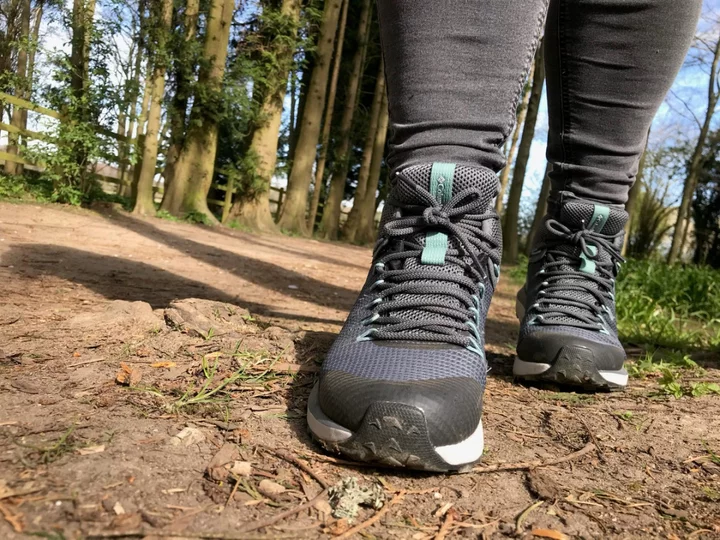
Tried & Tested: 5 summer walking boots
Whether you’re after waterproof walking, springy strolls or harder hikes and punishing treks, there are plenty of boots out there which will be a perfect fit this summer. Take a look at five we tried out, to help you put your best foot forward on a summer staycation. Berghaus Women’s Expeditor Trek 2.0 Boots (£99, tiso.com) Key features: No wearing in needed, thanks to super cushioning from the EVA midsoles and OrthoLite footbed. Their split suede upper, robust, grippy soles and all-round performance makes them good value for money. They were also the easiest boots to get on and off, with a wide entry point. Verdict: These snug-fitting – but comfy – walking boots pack a punch for the price and I did a five-miler straight from the box and didn’t suffer any ill effects around the toes or the ankles. They are reasonably lightweight and fairly generous width-wise, although I could feel a slight pinch point mid-foot by the end of the first walk, which evened out the more I used them. The grip is sufficient for tricky hills and they are also waterproof, although I suspect you won’t do the suede upper any good if you’re traipsing through boggy puddles. On the whole, a great all-rounder for the price. Columbia Women’s Trailstorm Mid Waterproof Walking Shoe (£90, columbiasportswear.co.uk) Key features: Their weight – just 290g. Their versatility and good looks mean they wouldn’t look out of place under jeans, if you’re doing a short amble with a stop-off at the pub, or some easy sightseeing en route. Verdict: These super-lightweight boots – which are actually billed as a walking shoe but have some ankle cushioning – are a cross between a sturdy trainer and a light walking boot. They have the comfortable springiness of a trainer – which is great for walking on dry ground – while the grip will hold you steady on more rocky terrain. They are waterproof, withstanding a bit of summer rain, but I wouldn’t be taking them into boggy winter conditions any time soon. They’re ideal for summer, when you don’t want heavy boots for meandering along easy country paths and green fields in the sunshine. Get a size up from your regular shoe fitting and you’ll do miles in total comfort. Helly Hansen W Switchback Trail Helly Tech (£120, hellyhansen.com) Key features: Their toe and heel caps keep your feet secure and protected, they’re fully waterproof and feel sturdy, despite being relatively light. Verdict: These are impressively sturdy boots considering how light they feel, definitely not an enhanced trainer but with an understated, stylish look, which would appeal to both younger and older walkers. During a 10-miler across mixed terrain, they had a sure grip providing stability on rocky, unstable downhill slopes, while the cushioning on super hard surfaces made you feel like you were walking on cotton wool. Get yourself a size up if you want to wear thick socks with them in the winter, but the spongy, comfortable materials used around the ankle and the tongue should assure you of a blister-free trek. Merrell Moab Speed Mid GORE-TEX (£135, merrell.com) Key features: The mid-sole has extra cushioning, which protects the balls of your foot, along with a ‘rockplate’ which helps reduce the impact of unforgiving sharp rocks or stones underfoot. Verdict: With a Gore-Tex lining you can count on, I yomped through muddy fields and shallow puddles and stayed dry – it’s worth paying an extra few quid for the knowledge you won’t be squelching in your boots. In our unpredictable British summers, though, you want plenty of breathability which these boots have in spades. After trying them out on a warm spring day in thin socks, my feet emerged as dry as a bone. Eco-warriors may be impressed with the 100% recycled laces, which didn’t feel flimsy, the recycled mesh lining and 30% recycled rubber in the outsole. AKU Alterra Mid GTX (£229.90, aku.it/en) Key features: The outer sole and impressive grip helps prevent you stumbling on rocky, uneven ground, while there’s excellent protection around the ankle, yet it still feels spongy and comfortable. Verdict: The Italian specialist brand Aku says these sturdy boots are designed for medium terrain and longer rambles over mixed ground, but these were by far the toughest boots, with such impressive grippy soles that I think they’re just as suitable for winter walks. They may be a little extravagant – and a bit heavier looking – for easier summer rambles, but if you’re a hardcore hiker with aims of climbing challenging peaks this summer, these are just the job. And right on cue, Aku has brought out a new lighter weight version of the same boot, so look out for the Alterra Lite Mid GTX. Read More Charity boss speaks out over ‘traumatic’ encounter with royal aide Ukraine war’s heaviest fight rages in east - follow live Do I need to treat my garden furniture before storing it for winter? Prince William heads to New York for UN General Assembly climate week event London Fashion Week: Jourdan Dunn walks in emotional Richard Quinn show
1970-01-01 08:00
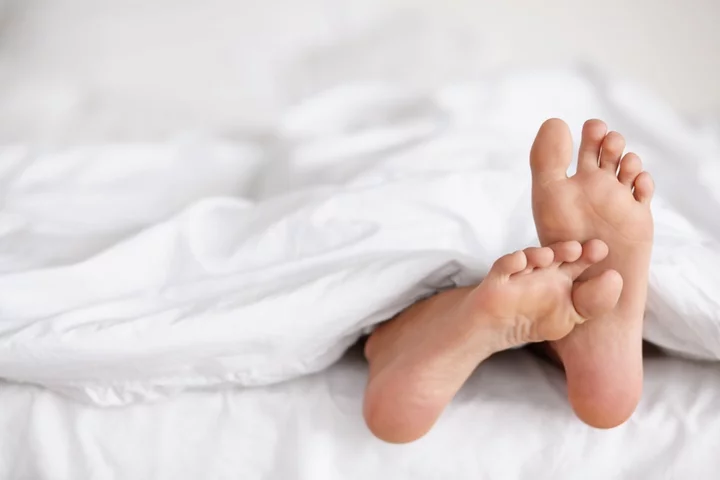
Brits get itchy feet in their home after five years, study finds
The average Brit starts to get itchy feet in their home after five years, a study has found. Researchers revealed after living happily in their homes for years, the five-year-itch hits, resulting in property owners browsing websites and estate agent windows for their next buy. Looking online at property websites (59 per cent) and taking an interest in ‘for sale’ homes in your neighbourhood (32 per cent) are the major tell-tale signs people are considering a move. And 31 per cent admit thinking about what they can do to get their home ready to sell (31 per cent) is another indication they’re ready to make the switch. Anthony Ward Thomas, of Anthony Ward Thomas Removals, which commissioned the study of 2,000 adults, said: “Moving can be a challenging task, but it doesn’t need to be. “It’s not a surprise for 54 per cent of people, cost is the most important factor when making a move.” The research, carried out by OnePoll, found Londoners get itchy feet the quickest of any region – as they want to move less than four years in. Those in the capital aren’t as willing to stay put in their property either, as they said they could stay at their current home for another seven years at a push – compared to those in the East Midlands who would live at their current abode for more than 13 years. Other top signs people are looking to move home include getting fed up with the neighbours (24 per cent), not having enough storage space (23 per cent) and no longer enjoying spending time in your home (22 per cent). However, one of the major factors putting people off moving was the thought of shifting their stuff (55 per cent). Despite this, only 43 per cent of people who moved home previously said they used a removal company to help them. Yet 59 per cent said if they were to move now, they’d get outside help from a specialist – highlighting just how important they are. In fact, a staggering show of support, 92 per cent of those who had used a removal company said they would use one again. Among the major benefits included not having to do the heavy lifting (62 per cent), being less stressful (50 per cent) and having one less thing to worry about (45 per cent). Others included saving time (42 per cent) and not getting injured lifting heavy things (40 per cent). Anthony Ward Thomas added: “As our results show, one of the major factors which puts people off moving is having to move their belongings. “Using a professional company to help you pack up, move out and move in buys you peace of mind. “It should be any delivery firm’s number one priority to ensure every single item is looked after as if it were their own and to care about every move.” FIVE TELLTALE SIGNS YOU’VE GOT ITCHY FEET: Looking online at property websites Taking an interest in ‘for sale’ signs in your neighbourhood Getting fed up with the neighbours Not having enough storage space No longer enjoying spending time in your home TOP 5 TIPS FOR MOVING HOME, FROM ANTHONY WARD THOMAS: Make a move plan – include all tasks on it and assign them to people and/or companies helping you Clear the clutter – give yourself 5 categories: keep, sell, bin, store or giveaway Hire professionals – don’t cut costs and do a DIY move, it pays to have peace of mind Pack from the top down – start at the top and work downwards, labelling your boxes with what’s in them, where they’ve come from and where they’re going to Box of essentials – from a kettle, mugs and coffee to bedding for the first night and the kid’s iPads, pack up useful items in one box. Read More What is Cheese-pulling? New world record set for highest pull Zombie ant parasite is ‘even more cunning’ than previously thought, scientists say NASA astronaut Frank Rubio breaks US record for longest spaceflight Mother explains decision to breastfeed her four-year-old son ‘My baby’s blue eyes drew praise - but their colour was a warning sign’ What the world’s happiest children tell us about where Britain is going wrong
1970-01-01 08:00
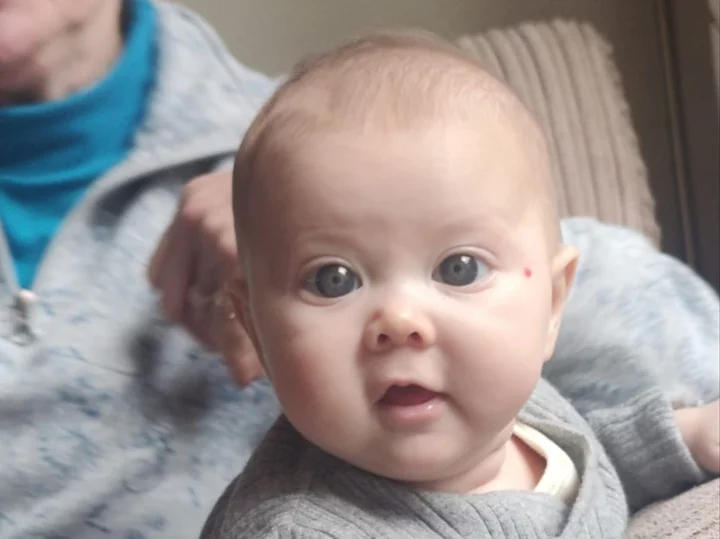
‘My baby’s big blue eyes drew endless compliments - but they were the sign of a life-changing condition’
A baby’s “beautiful big blue eyes” which were complimented by everyone - turned out to be a symptom of a condition causing blindness. Louise Bice, 34, was stunned when her daughter, Aretria, was born with big blue eyes - a trait nobody else in the family had. Her “beautiful” eyes would see the tot complimented “six or seven times every day” by strangers - which Louise loved. But at six months old, in May 2023, one of Aretria’s baby blue eyes turned “milky” and any light caused the tot to scream in pain. Louise and her partner, Connor Bice, 29, a chartered accountant, thought their youngest daughter might have hit her eye with a toy. But the family were told Aretria - now 10 months old - had a severe case of bilateral congenital glaucoma, a genetic abnormality which saw extreme and growing pressure on the optic nerve. Her much-loved big eyes actually required urgent surgery. Tiny Aretria had a four-hour operation at Birmingham Children’s Hospital in June to relieve the pressure - but follow-up tests showed it had failed. She had a second surgery in August and her parents are awaiting the results - although the tot has lost almost 100 per cent of her vision in one eye already. Mum Louise wants to warn other parents to look for the symptoms - and to not assume big eyes are “beautiful” when they could be a sign of something more serious. Louise, a stay-at-home mum, from Mansfield, Nottinghamshire, said: “I never expected Ari’s big, beautiful eyes to be a bad thing. “Suddenly one day her eye clouded over - one minute it was fine and 15 minutes later it was completely changed. “Specialists had to do horrific tests on her and I learned she had already lost some vision in both eyes. “After two surgeries we still don’t know what will happen - she already has just five per cent vision left in her right eye. “She’s in so much pain and I don’t know if she can cope with another surgery. “I just think if we had managed to get this diagnosed before the pressure got out of control, she might not now be blind in one eye. “If someone had said it was weird, she had big eyes rather than cute we might have got it checked - but none of us knew it was even a red flag.” After Aretria was born on October 20, 2022, her big eyes became a source of many compliments from friends and family. Her parents even lovingly likened their little one to a cartoon bug, thinking nothing of it. Even doctors and health visitors thought they were sweet - and nobody mentioned any risks. But on May 20, Louise popped to the shop and when she returned 15 minutes later one of her daughter’s eyes was clouded. Louise said: “Connor sent me a picture that morning of the two of them together while I was out and her eyes were fine. “When I got back her right eye had clouded over. “I hadn’t even got through the door when I said ‘we need to take her to A&E right now’.” They went to their local hospital, King’s Mill, Mansfield, then were sent to Chesterfield Royal Hospital, Derbyshire, where doctors identified the high pressure but couldn’t work out why it was happening. They were then booked in to see specialists at Queen’s Medical Centre, Nottingham, two days later on May 22. Aretria’s condition was finally diagnosed - as bilateral congenital glaucoma - and even the specialists said they’d only seen a handful of cases. Medics explained the little girl needed surgery but warned even then, she’d be left with little vision in her worst eye because the damage had already been done. Louise said: “Doctors said she had been exposed to high eye pressure from birth because her fluid drainage system didn’t form properly in her eye when she was still in the womb.” A surgery was scheduled at Birmingham Children’s Hospital, West Midlands, for June 13 which saw the tot go under the knife. The four-hour procedure was followed by a month of eye drops six times a day as well as having protective eye shields taped onto her face for a week. Louise said: “We didn’t get any sleep for about a week after and hoped that would be the last of it. “But two weeks later when we went back for her post-op, the pressure readings were even higher than before. “The operation had failed - and she would need more surgery.” A second operation was done on August 18 - and it was again followed by a gruelling recovery for the tot, who couldn’t understand why any of it was happening. They’re still waiting for official results, but signs so far suggest the surgery may have been unsuccessful for a second time. Louise said if that’s the case, medics will move on to a different kind of surgery to release the pressure involving drainage tubes or valves. She fears the tot “might not cope with another surgery” - but they may not have a choice. While Aretria’s vision is virtually gone in her right eye, her left eye is compensating - although Louise and Connor fear the vision will worsen in her good eye too. Louise wants to warn parents to look out for the symptoms - even if they might not seem sinister. She said: “Before, she used to get compliments about her eyes six or seven times a day. “Now I just feel really awkward when people say it. “Aesthetically it might be, but having these big, beautiful eyes isn’t always a good thing. “If we knew that before, she might not be blind in her right eye now.” Read More GoFundMe for actor blinded in attack over Covid mask tops $15,000 He couldn’t see his wedding. But this war-blinded Ukrainian soldier cried with joy at new love A camp teaches Ukrainian soldiers who were blinded in combat to navigate the world again ‘Millions of women and girls suffer severe pain’ during periods – research finds Miriam Margolyes jokes that her ‘longing for fudge’ caused her health issues 5 things everyone needs to know about eczema
1970-01-01 08:00

Border authorities separated some migrant families amid overcrowding in facilities, report says
US Border Patrol separated some migrant children from their parents while the families were in custody amid overcrowding in facilities, according to a Friday court filing.
1970-01-01 08:00
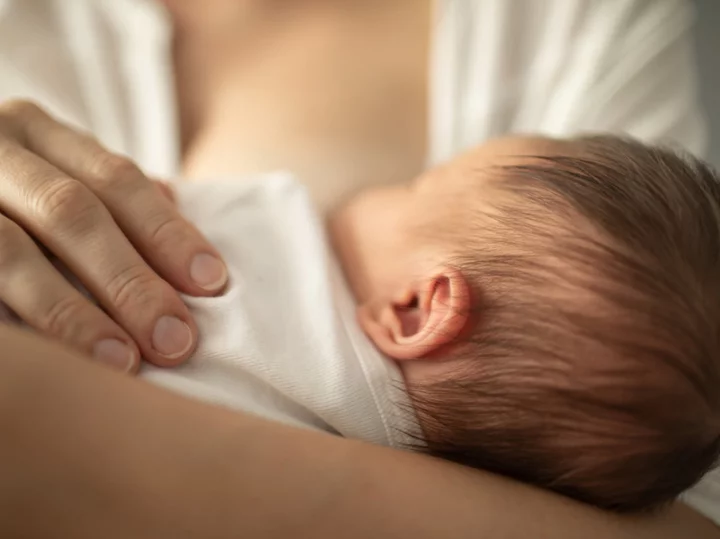
Mom breastfeeds her son at four years old and has no plans to stop
A mother has said she still breastfeeds her four-year-old son and has no plans to stop any time soon. Allison Yarrow, the journalist and author behind Birth Control: The Insidious Power of Men Over Motherhood, reportedly told People that she hasn’t stopped breastfeeding because she believes it makes her son dependent on her and vice versa. “We haven’t stopped breastfeeding because breastfeeding works for us,” Yarrow explained to the outlet. “It’s something we do once or twice a day. Sometimes it happens more than that if he’s hurt or sick, but it is a way that we connect and communicate with each other.” Within the first hour of birth, babies should initiate breastfeeding and be exclusively breastfed for the first six months of their lives, according to the World Health Organization (WHO). Health officials advise that babies should only be breastfed on demand from six months to “up to two years of age or beyond.” In June 2022, The American Academy of Pediatrics agreed with their recommendation, adding that they supported continued breastfeeding only as long as it was “mutually desired for two years or beyond.” Yarrow advocates for continued breastfeeding, citing multiple benefits: “The research shows that breastfeeding can reduce breast and ovarian cancers. The hormone oxytocin is released when you breastfeed, so it actually feels good.” While breastfeeding is also associated with small neurodevelopmental outcomes in children, according to the Mayo Clinic, is also “associated with a reduction in acute infections as well as chronic adult conditions like obesity, cancer, heart disease and allergies.” “It’s a way of connecting,” Yarrow continued. “And I don’t think I would still be doing it if I didn’t enjoy it. I wouldn’t be just sacrificing myself at this stage. My four-year-old has other food, right? He’s not coming to me for food.” “We still breastfeed because it’s a way to connect with each other. We feel good. It’s intimacy. It’s looking into each other’s eyes. It’s cuddling. It’s having a physical connection. And that strengthens our connection in general,” Yarrow added. Yarrow’s decision to continue breastfeeding well past the age of two is considered taboo to most Americans, but she explained to the outlet that she believes this mentality is more indicative of misogyny in American culture. “Our culture really doesn’t support women doing things with their bodies that they want to be doing, so that certainly extends into breastfeeding,” Yarrow noted. “There’s really poor research about extended breastfeeding. There isn’t a lot of it.” She continued: “And women and people who give birth are really hampered in their quest to breastfeed after their babies are born. We know that the majority of people who give birth want to breastfeed, but most don’t even meet their own breastfeeding goals because accessing lactation support is incredibly difficult.” Yarrow elaborated that poor healthcare and support forces a lot of women to head back into the workplace earlier than they might like. “Often it’s not covered by insurance or Medicaid, and people have to pay out-of-pocket and find somebody to support them in this way when they’re already very vulnerable recovering from childbirth and caring for a newborn,” she said. Read More Mother reacts to video of her breastfeeding taken without her knowledge Woman says she was told not to breastfeed on flight because it would make passengers ‘uncomfortable’ Rumer Willis shuts down criticism over breastfeeding photo with her child: ‘I am the happiest I have been’ Sia says she suffered ‘severe’ three-year depression after Erik Anders Lang divorce David Foster and Katharine McPhee express grief after death of their child’s nanny Mother defended after calling father ‘creepy’ over name choice for newborn daughter
1970-01-01 08:00
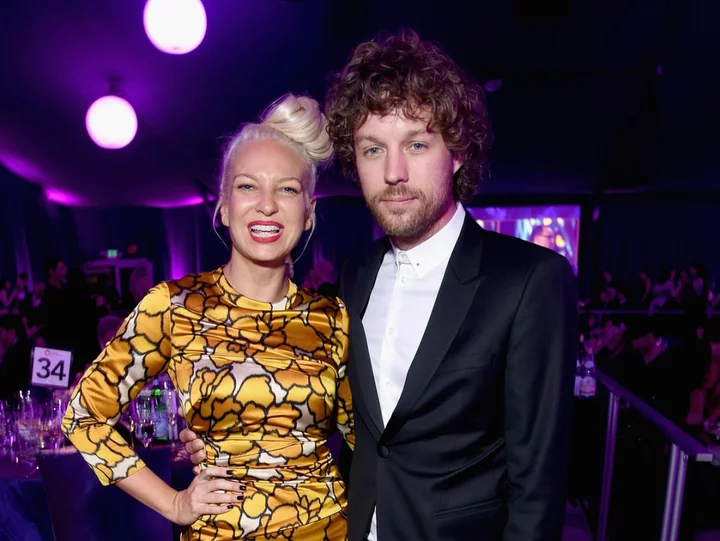
Sia reveals she suffered ‘severe’ three-year depression after divorce from Erik Anders Lang
Sia has opened up about the painful experience she underwent after her divorce from ex-husband Erik Anders Lang. The “Chandelier” singer, 47, spoke candidly about her mental health in an interview with Zane Lowe for Apple Music 1 on 13 September. “Well, actually, the truth is that I had just been every now and again writing a song here or there for the last six, seven years,” Sia said while discussing her forthcoming album, Reasonable Woman. "I got divorced and that really threw me for a loop,” she explained. “That was such a dark time that I was in bed for three years, really, really severely depressed. And so I couldn’t really do anything for that period of time.” However, the “Unstoppable” singer was able to record “just little bits and pieces here and there” of her new music, and eventually felt inspired to create an album. “Finally, it just turned out we had enough songs to make an album, enough good ones,” Sia continued. “I just rely on my management to tell me when we’ve got enough good ones, because I don’t really... I can tell when I think one is particularly good, I think I can tell, but they tell me when we’ve got 11 or 12 or 13 enough good ones, real good ones.” Sia, whose full name Sia Kate Isobelle Furler, was previously married to filmmaker Erik Anders Lang. The former couple were married at the Grammy-winner’s Palm Springs home in August 2014. However, they filed for divorce two years later, citing “irreconcilable differences”. These days, the “Cheap Thrills” singer has moved on with husband Dan Bernad. The couple were married last May during an intimate wedding ceremony in Italy with “just four” guests present. Sia has managed to keep many details about her relationship with Bernad private, sharing only one picture with him on Instagram last year. “Pride forever! #lgbtqia+ #LAFC #22 also just finished my next album! A great day all round!” she captioned the post, which featured Bernad. According to People, the couple tied the knot during a candlelit ceremony at Domenico Dolce and Stefano Gabbana’s Villa Olivetta in Portofino, Italy – the same venue where Kourtney Kardashian married Travis Barker in May 2022. The bride wore a lace mermaid wedding gown, complete with a matching, nude sheer veil, while Bernad chose a light-coloured tuxedo for the nuptials. They reportedly exchanged vows under an iron gazebo, adorned with pink, purple, yellow, and white flowers. In 2020, Sia announced she had become a grandmother at the age of 44 - one year after she adopted two adult sons. Speaking to Apple Music’s Zane Lowe at the time, she revealed that one of her adopted sons had just become a father. “My youngest son just had two babies, I’m just immediately horrified,” she quipped. “No, I’m cool. They call me Nana. I’m trying to get them to call me Lovey, like Kris [Jenner]. I’m like: ‘Call me Lovey’... I’m a f***ing grandma!” Read More Sia marries boyfriend Dan Bernad at wedding with ‘just four guests’ ‘I love them’: Sia reveals she adopted two 18-year-old sons Emily Ratajkowski jokes she’ll date ‘anyone who wants to take her to dinner’ David Foster and Katharine McPhee express grief after death of their child’s nanny Mother defended after calling father ‘creepy’ over name choice for newborn daughter Action needed to protect women from birth trauma – MP
1970-01-01 08:00

David Foster and Katharine McPhee express grief after death of their child’s nanny
David Foster and wife Katharine McPhee have broken their silence about the death of their nanny, Yadira Calito. The couple opened up about their grief nearly a month after the caregiver’s death during an interview with Entertainment Tonight on 14 September. When the interviewer expressed his condolences to the pair, after the loss of Calito – who cared for the couple’s two-year-old son, Rennie – Foster replied: “It’s been tough for her,” while looking over at his wife. McPhee went on to nod her head in agreement with her spouse. “Yeah, it’s been tough. She’s managing,” Foster continued, before his wife added: “Thank you.” On 15 August, TMZ was the first to report that Calito was killed when an 84-year-old woman behind the wheel of a Toyota RAV4 crashed into the reception area of Hamer Toyota in Los Angeles. The news came days after the Los Angeles Police Department issued a statement about the incident, noting that the “driver accelerated for unknown reasons and collided with several people who were inside” the car dealership. The 55-year-old nanny had “sustained fatal injuries” during the collision, before she “was pronounced deceased at the hospital”. At the time of the traffic collision, LAPD also shared that two employees, aged 23 and 35, were treated “for non-life threatening injuries” at the hospital and were “expected to make a full recovery”. Investigators also said that the driver, who is from Mission Hills, had taken her car into the dealership for a service and accidentally pressed the accelerator instead of the brakes. No arrests have been made following the incident. One day after the police report was shared, McPhee posted a statement to Instagram to announce that she was missing the rest of her husband’s tour in Asia, where she’s been performing as a guest, due to a family emergency. “Dearest Jakarta fans, it’s with heavy heart I announce I have to miss our final two shows of our Asian run,” she wrote. “David and I have had a horrible tragedy in our family and at least one of us needs to get back home to our family. Please know how sorry I am and how much I wish to return someday and perform for you all. Love, Katharine.” At the time, many famous faces took to the comments of the post to send McPhee kind messages. “Sending my love and prayers for your family,” Masked Singer judge Nicole Scherzinger wrote, while Linda Thompson added: “Sending you and David love, & hoping that everything is okay.” Foster is set to return to his tour on 1 November in Michigan, according to his official website. Along with touring again, Foster and his wife will also be releasing a new album next month in honour of the holiday season, which is called Christmas Songs. Foster and McPhee made their official debut as a couple in 2018, before tying the knot the next year. They welcomed their first child, Rennie, together in February 2021. Since then, they’ve continued to open up about their child one day following in his parents’ footsteps. During an interview with ET in October, Foster acknowledged that, although Rennie has developed an interest in drumming, it’s still soon to tell if he’ll become a musician. “You know when you look at somebody like Andre Agassi and Steffi Graf, their kids are very talented... but they’re not tennis players, so we don’t know,” he said “He’s so young.” McPhee also agreed, adding: “It makes sense that he’d be musical, but we’re not really sure. He’s certainly obsessed with the drums! Or imaginary drums, for that matter.” Earlier this year, the former American Idol contestant gushed over her relationship with her son and husband, before noting that she was open to growing her family. She also reflected on how she first met Foster when she was on the singing competition show in 2006, over a decade before they started dating. “We can’t believe the ride that we’ve been on. That show [American Idol], I look back on it more fondly because of the fact that it gave me my husband and my first child,” she said, during an appearance on The Jennifer Hudson Show, before later adding: “I would love to have another baby. But we’ll see, we’re not in any crazy rush or anything. But I hope so. I love being a mom.” Read More Katharine McPhee’s nanny crushed to death in car dealership after elderly driver crashed into reception Katharine McPhee reveals she and husband David Foster suffered a ‘horrible family tragedy’ Katharine McPhee reveals whether she and David Foster want more children Mother defended after calling father ‘creepy’ over name choice for newborn daughter Action needed to protect women from birth trauma – MP Imagination and hard work in children trumps obedience – research finds
1970-01-01 08:00
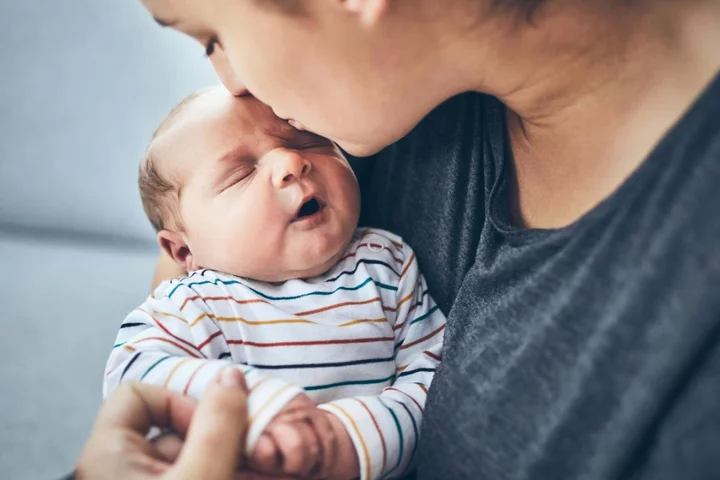
Action needed to protect women from birth trauma – MP
More must be done to protect women from birth trauma, a Tory MP has said after a new poll revealed that traumatic births have prevented a significant proportion of women from having more children. Theo Clarke said that it was “vitally important” that women receive the care and support they need after a traumatic birth. It comes after a poll of members of the Mumsnet community found that more than half (53%) who had suffered birth trauma said their experience put them off having more babies. The MP for Stafford has previously spoken out about her own birth story, where she described how she thought she was “going to die” after suffering a third degree tear and needing emergency surgery. She has since set up an All Party Parliamentary Group (APPG) on Birth Trauma to try to highlight the plight of thousands of women who suffer similar situations each year. A poll of 1,000 members of the Mumsnet website, shared with the PA news agency, found that 79% of those surveyed had experienced birth trauma. While the poll does not represent all mothers across the UK, it provides a snapshot of the experiences of those who use the popular parenting site. The survey also found that 72% of those who had experienced birth trauma said their issue had not been resolved a year after giving birth. Among those who had experienced physical, emotional or psychological birth trauma, 44% said healthcare professionals used language which implied they were “a failure or to blame” for the experience. Three quarters (76%) of all of those polled said they felt that health professionals had become “desensitised” to birth trauma. Almost two thirds (63%) said they did not believe healthcare workers did everything they could to prevent birth trauma. And 64% said they felt a “lack of compassion” from healthcare professionals during labour. Commenting on the poll, Ms Clarke said: “These survey results are deeply upsetting. They speak to my own experience of birth trauma and quite clearly to many, many other women’s horrendous experiences too. “That more than half of women across the UK who responded say they are less likely to want another child because of their birth experiences and they were made to feel they were to blame is simply terrible. “The survey is clear that more compassion, education and better after-care for mothers who suffer birth trauma are desperately needed if we are to see an improvement in mums’ physical wellbeing and mental health. “The APPG is now up and running in Parliament and will continue to listen to mothers and experts to drive fundamental change in how we treat mums. Our ambition is for birth trauma to be included in the Government’s women’s health strategy. “It is vitally important women receive the help and support they deserve.” Mumsnet chief executive Justine Roberts said: “We hear daily on Mumsnet from women who have had deeply upsetting experiences of maternity care, and this latest research underlines that the majority of mothers experience birth trauma – whether physical or psychological. “This trauma has long-lasting effects and it’s clear that women are being failed at every stage of the maternity care process – with too little information provided beforehand, a lack of compassion from staff during birth, and substandard postnatal care for mothers’ physical and mental health.” Kim Thomas, chief executive of the Birth Trauma Association, added: “It is time for a complete overhaul in the way women experience maternity. “This should include: honest, evidence-based antenatal education; compassionate and professional care during labour; and postnatal care that is designed to identify and treat every birth injury or mental health problem. “A maternity system that puts women at the heart of care is not some kind of unfeasibly high goal – it is the bare minimum that women have the right to expect.” A Department of Health and Social Care spokesperson said: “We are committed to making the NHS the safest place in the world to give birth, and improving support for women before, during and after pregnancy is a priority in the Women’s Health Strategy. “We are investing an additional £165 million per year to grow and support the maternity workforce and improve neonatal care. NHS England recently published a three-year plan to make maternity and neonatal care safer, more personalised, and more equitable for women, babies, and families. “To support women following trauma related to their maternity experience, we are rolling out 33 new maternal mental health services, which will be available across England by March 2024.” Read More Charity boss speaks out over ‘traumatic’ encounter with royal aide Ukraine war’s heaviest fight rages in east - follow live Imagination and hard work in children trumps obedience – research finds 7 ways you could be damaging your eye health without even realising Celebrities mingle with royals at glam Vogue World party in London
1970-01-01 08:00
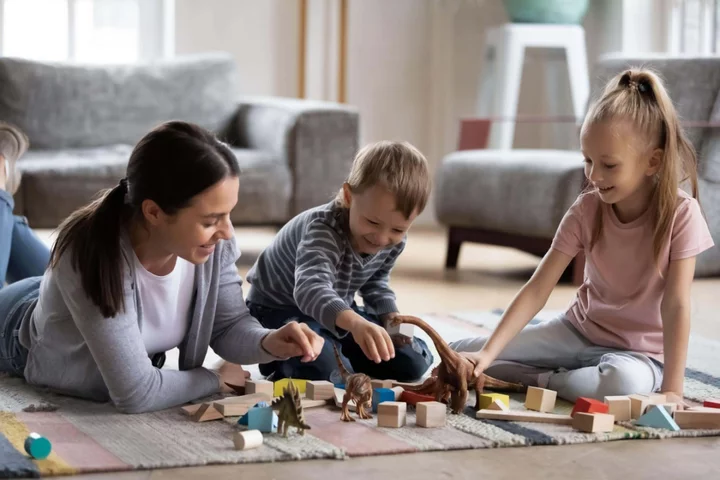
Imagination and hard work in children trumps obedience – research finds
Imagination trumps obedience when it comes to what the public thinks are important qualities in children, according to new research. But while British attitudes have changed in the past three decades, children being taught good manners at home is still highly rated among the majority of people, the wide-ranging survey found. Some 85% of people in 2022 saw good manners as especially important for children, down only slightly on the 89% who said so in 1990, research by the Policy Institute at King’s College London (KCL) showed. Good manners are still the quality we want to see most, there has been an increasing emphasis on the importance of hard work, and we’re also among the very most likely to value unselfishness Professor Bobby Duffy Obedience is now far less valued, the analysis of the long-running World Values Survey (WVS) found, with just 11% of those asked last year citing it as being an especially important quality for children to be taught, down from a peak of 50% who felt that way in 1998. More people now think qualities including independence and hard work are important things for a child to be taught, with the former up to 53% last year from 43% in 1990, and the latter having risen from 29% to 48%. Around four in 10 (41%) people said determination and perseverance were important, up from 31% three decades earlier, while more than a third (37%) felt imagination was important, up from less than a fifth (18%) in 1990. Tolerance and respect for others are still among the qualities seen as very important, coming just behind good manners at the top of the list, but it is now seen as less important that a child is taught to be unselfish, the research found. More than half (56%) of people thought it was especially important for a child to be taught not to be selfish back in 1990, but that fell to 43% last year. Of the 24 countries surveyed, the UK is among the most likely to value unselfishness in children and among the least likely to value responsibility and obedience, researchers said. More people in Japan, Norway, Sweden and South Korea felt imagination was very important for children to have, while only five countries (Egypt, Philippines, Morocco, Nigeria and Mexico) were above the UK in valuing good manners in children. Professor Bobby Duffy, director of the Policy Institute at KCL, said: “The qualities we’d like to see instilled in our children are important signals of what we value as a society – and the very clear message from these long-term trends is the increased importance of imagination and decline in how much we prize straightforward obedience. “But this doesn’t mean we want a society of self-centred children – good manners are still the quality we want to see most, there has been an increasing emphasis on the importance of hard work, and we’re also among the very most likely to value unselfishness. “Instead, this is likely to reflect a more general shift towards valuing self-expression, while still wanting our children to be positive and productive contributors to society.” The 2022 data comes from a sample of 3,056 adults across the UK interviewed by Ipsos through a mix on face-to-face and online survey methods, but for the analysis of trends over time, data is nationally representative for Great Britain only due to a lack of available trend data from Northern Ireland, and is based on surveys of 1,000 or more adults. Read More Charity boss speaks out over ‘traumatic’ encounter with royal aide Ukraine war’s heaviest fight rages in east - follow live 7 ways you could be damaging your eye health without even realising Celebrities mingle with royals at glam Vogue World party in London Sienna Miller bares baby bump at celebrity and royal-studded Vogue event
1970-01-01 08:00

7 ways you could be damaging your eye health without even realising
Our eyesight is often something we take for granted – until there’s something wrong with it. Problems like short-sightedness (myopia) are rapidly increasing. In fact, research has predicted that by 2050 there will be 4,758 million people with the condition – nearly half (49.8%) of the world’s population – as experts are highlighting ahead of National Eye Health Week (September 18-24) In addition, new research by Macushield found 73% of Brits notice their eyes deteriorating with age, and the World Health Organisation’s (WHO) World Report on Vision has predicted a dramatic increase in the need for eyecare in the near future, pointing out that at least 2.2 billion people globally have a vision impairment – and around half of these have vision impairment that could have been prevented. “Some people may not be giving their eye health the attention it deserves, occasionally missing out on annual eye tests, which play a crucial role in detecting conditions like cataracts, glaucoma, and age-related macular degeneration,” says ophthalmologist Dr Jørn Slot Jørgensen. “When identified and addressed in a timely manner, these issues can be managed effectively, helping safeguard our vision.” Jørgensen says the pandemic also played a role in worsening eye problems, particularly the increase in short-sightedness. “With the shift to remote work, people are now more likely to spend extended hours with their screens for work and leisure,” he says. “Prioritising eye health isn’t just a matter of convenience, it’s a fundamental aspect of our overall wellbeing.” Here Jørgensen, of the Laser Eye Clinic London, and Evelyn (Evie) Mensah, a consultant ophthalmologist and eye surgeon at Central Middlesex Hospital and member of The Royal College of Ophthalmologists council, outline seven ways people may be damaging their vision, without even realising… 1. Skipping eye tests Mensah says it’s advisable for people to have a sight test every two years, or more often if their optometrist recommends it. Jørgensen adds: “Failing to schedule regular eye tests can result in undiagnosed eye conditions. Conditions like glaucoma, diabetic retinopathy, and macular degeneration often develop without noticeable symptoms in their early stages, but early detection through eye tests is crucial for effective treatment and vision preservation.“ Routine eye tests can also pick up early signs of underlying systemic health conditions, such as diabetes, high cholesterol and high blood pressure. 2. Prolonged screen time The widespread use of digital devices such as laptops, tablets and smartphones has led to extended periods of screen time for both work and leisure, says Jørgensen. “This can result in digital eye strain, characterised by symptoms like dry eyes, headaches and blurred vision,” he explains. “In this age of digital technology, it’s advisable to relieve digital eye strain by using the 20-20-20 rule,” says Mensah – this means every 20 minutes, looking at something 20ft away for 20 seconds. “In addition, remember to blink when using a screen to prevent eyes from getting dry.” 3. Not wearing UV protective sunglasses Jørgensen says failing to wear sunglasses with adequate UV protection can lead to harmful UV radiation exposure, which may contribute to conditions like cataracts and age-related macular degeneration (AMD). “Protecting your eyes from UV rays, particularly in sunny conditions, is essential for preserving long-term eye health,” he stresses. Mensah says UV exposure can also increase the development of growths on the surface of the eyes called pterygia, and warns: “Not all sunglasses filter UV light, so ensure they carry the CE, UV 400 or British Standard Mark. And never look directly at the sun because this can cause a solar burn in the macula that can result in permanent visual loss.” 4. Poor diet and lack of nutrients Eating a healthy, balanced diet could help reduce your risk of sight-threatening eye disease such as AMD, which impacts central vision. Mensah explains that the macula – part of the retina which processes what you see directly in front of you – contains natural pigments such as lutein and zeaxanthin that are found in dark-green, leafy vegetables such as spinach and kale. “Vitamins A, C and E are also helpful, so eat at least five portions of fruit and vegetables a day,” she advises. “And if you have a family history of AMD, ask your GP about taking nutritional supplements.” Jørgensen adds: “A poor diet lacking essential nutrients like vitamins A, C, and E, as well as minerals like zinc, can harm eye health, as these nutrients are vital for vision and overall eye function. To maintain healthy eyes, it’s crucial to consume a balanced diet rich in leafy greens, colourful fruits and vegetables, and omega-3 sources.” 5. Smoking If you’re a smoker, stopping is not only beneficial to your general health but also your eyes, says Mensah: “Smoking cessation is a modifiable factor that can reduce the risk of developing certain eye conditions such as AMD and cataracts.” Ask your GP for support if you are keen to quit – there are lots of helpful resources available. 6. Not wearing prescribed glasses Mensah says there’s a widespread misconception that wearing prescribed glasses worsens your eyesight. “This notion is inaccurate,” she stresses. “The primary reason for wearing prescribed glasses is simply because you require them. If you neglect to wear them, you run the risk of experiencing headaches.” 7. Inadequate lighting “Working or reading in areas with insufficient lighting can make your eyes work harder, leading to eye strain, discomfort, and poorer vision,” says Jørgensen. He points out that good lighting, often called ‘task lighting’, is vital for creating comfortable conditions for reading and working. Read More Charity boss speaks out over ‘traumatic’ encounter with royal aide Ukraine war’s heaviest fight rages in east - follow live Celebrities mingle with royals at glam Vogue World party in London Sienna Miller bares baby bump at celebrity and royal-studded Vogue event See plus-size model Ashley Graham stun in Old Hollywood-inspired Harris Reed LFW show
1970-01-01 08:00
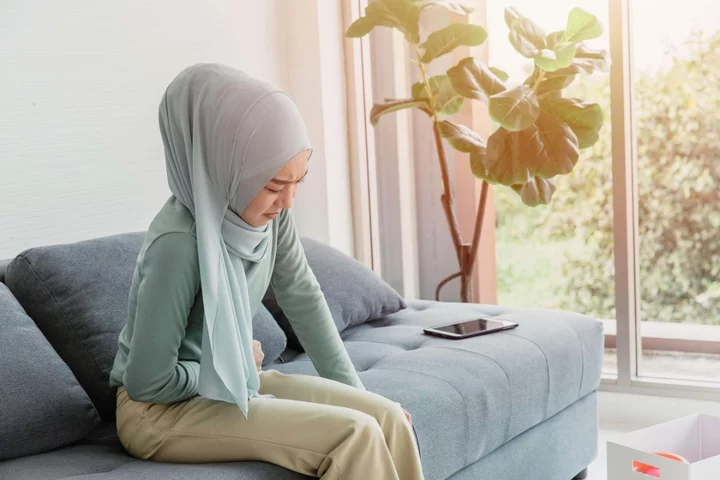
‘Millions of women and girls suffer severe pain’ during periods – research finds
Almost half of people who menstruate experience period pain that is ‘severe’ – and 51% feel their symptoms aren’t taken seriously by healthcare professionals, new research has found. The survey, commissioned by health charity Wellbeing of Women, asked 3,000 women and girls in the UK about their experience. A massive 86% of those surveyed said they have had mental health problems in relation to their period. Many said they had ‘debilitating pain’, bleeding for six weeks and some waited decades for a diagnosis of a health condition, in the survey of 16 to 40-year-olds across all regions, backgrounds and ethnicities. Women and girls have been “dismissed for far too long”, said Professor Dame Lesley Regan, chair of Wellbeing of Women. “It’s simply unacceptable that anyone is expected to suffer with period symptoms that disrupt their lives.” Painful, irregular and heavy periods can be symptomatic of serious gynaecological conditions. Signs of the chronic condition endometriosis – when the endometrial lining grows outside of the uterus – include debilitating period pain. Similarly, adenomyosis – a condition where the uterus lining starts growing into the muscle of the womb wall – is normally identifiable by painful periods and heavy bleeding. Painful periods may also be a sign of fibroids, non-cancerous growths that develop in or around the womb. Despite around two in three women developing at least one fibroid at some point in their life, according to the NHS, only 38% of those surveyed knew about the condition. Awareness for adenomyosis was even lower, at only 10%. The research found only 14% have tried medication to reduce heavy bleeding, despite treatments, like tranexamic acid which reduces blood loss significantly, being available. Caroline Nokes, Conservative MP and chair of the Women and Equalities Committee which is conducting an inquiry into reproductive and gynaecological health, said: “There is a terrible phrase, ‘Well, it’s just a period, why are you making a fuss about that? Can’t you just get on with it?’ “Yet many women and girls are experiencing horrendous period symptoms and gynaecological conditions. “These are impacting the health of women and girls, and preventing them from taking part in work, school, sport and everyday life. “Endometriosis alone affects 1.5 million women in the UK and costs the economy £8.2 billion – now is the time for change.” Wellbeing of Women have launched a new campaign called ‘Just A Period’ – aiming to address the normalisation of worrying period symptoms. NHS GP Dr Aziza Sesay said: “In my clinic, I see teenagers who are anaemic, who miss several days of school, and they don’t realise that this isn’t normal. They’ll literally use the words, ‘It’s just a period’. “It’s vital that we raise awareness and education on periods. We need to stop the narrative that heavy and painful periods are something we have to live with. “I want women and girls to have the knowledge to advocate for themselves, to push for more investigations, and to push for a diagnosis and treatment so that they don’t have to live with debilitating symptoms.” Clare Nasir, Channel 5 weather broadcaster and host of BBC Under the Weather broadcast, was diagnosed with fibroids and had an myomectomy – an operation to remove them. “With fibroids, there’s the physical pain but also the mental pain, I was struggling to conceive but looked about five months pregnant. People would write into the show asking why I hadn’t declared my pregnancy. It took a toll on my mental health. “When I eventually had my myomectomy, it was life changing. I’m passionate about raising awareness so that other women don’t feel alone and or suffer unnecessarily.” Read More Charity boss speaks out over ‘traumatic’ encounter with royal aide Ukraine war’s heaviest fight rages in east - follow live Cats given vegan diets ‘have better health outcomes’, study claims Groundbreaking migraine treatment offers ‘new hope’ for patients Taylor Swift and Shakira lead the charge in slit dresses at the 2023 MTV Video Music Awards
1970-01-01 08:00
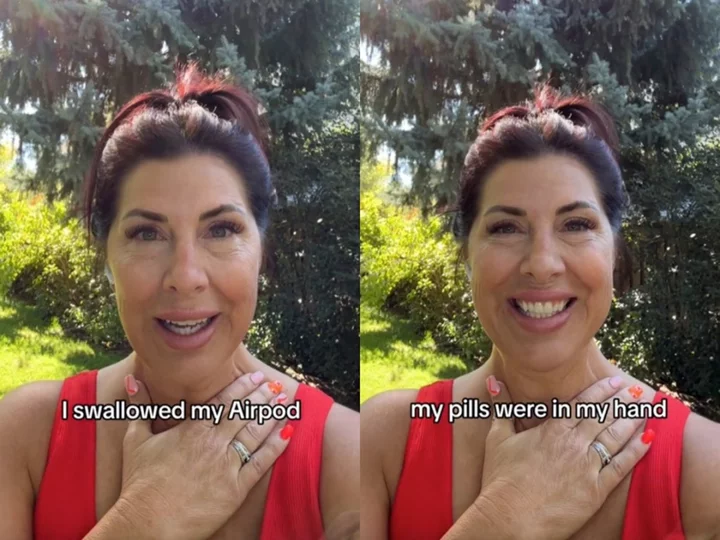
Woman says she accidentally swallowed her AirPod after mistaking it for a vitamin
A woman has revealed that she accidentally swallowed her AirPod while distractedly talking to a friend because she mistook it for a vitamin. Tanna Barker, a 52-year-old realtor from Utah, went viral on TikTok when she shared the “embarassing” story of how she ate one of her AirPods. Now, many viewers have sent her advice as she waits for the wireless headphone to naturally pass. “Okay, I’m gonna be very vulnerable right now,” she began the video, which has been viewed more than 2.7m times since it was posted on Saturday 9 September. “I had a situation happen this morning that I’m still dealing with.” Barker explained that she was on her morning walk when she ran into her friend, Kathleen, who she hasn’t seen in quite some time. “She was filling me in on her life and it’s been very, very busy and full and a lot went on, actually,” she said. However, Barker couldn’t hold back her laughter as she recounted: “Halfway through my walk, I decided to take my vitamins. So I put my vitamins in, took a drink and I was like: ‘Man, those are stuck.’” She then “guzzled” her water to wash the vitamin down, said goodbye to her friend, and kept going on her walk. But when she went to reach for one of her AirPods, she realised it was nowhere it be found. “My pills were in my hand. I swallowed my AirPod,” Barker said, laughing. Much like anyone would do in Barker’s situation, she quickly called friends and professionals in the medical field who “all suggested the same thing” - to let the AirPod pass naturally. “I don’t know if anyone has ever done that, it’s embarrassing, but I did it and we’ll see what happens. I’m gonna follow the advice of professionals,” she added. Despite swallowing her one AirPod, Barker pointed out that there’s still a “bonus” to the unfortunate situation: “I still have my right AirPod.” @tannasellsutah ?OH MY GOOOOOOOSH!!!! You have to watch this! So embarrassing!!! #istillcantbelieveit #whatinthelivingheck #thistooshallpass #whatthe #iamshook #getoutofmybelly ♬ original sound - IamNanaTanna She captioned her TikTok video with the hashtags: #istillcantbelieveit, #whatinthelivingheck, #thistooshallpass, #whatthe, #iamshook, and #getoutofmybelly. Barker’s viral video has since received thousands of comments from TikTok users, a majority of them mostly curious whether the AirPod was still working inside Barker’s body and if she can hear music from her stomach. “The first thing I’d do is play music and see if I can hear it from my stomach,” one person commented. “Play music really loud so you can track its progress,” another user joked. “I’d literally have a panic attack knowing an AirPod is in me,” said someone else. “Not knowing what will happen, possibly blowing up.” @tannasellsutah Part 2…take 2…#2 ♬ original sound - IamNanaTanna In a follow-up video, Barker revealed that it was actually her husband’s AirPod that she swallowed, but he’s maintained a positive outlook on the situation. She recently told her husband that she was going grocery shopping and he asked how long she’ll be out, before telling Barker: “Oh, never mind. I could track you.” Many Apple users are aware that wireless AirPods are able to be tracked on the iPhone’s Find My Devices feature. When one TikToker asked Barker if she’s tried locating the AirPod with the tracking device to see if it still worked, she revealed that the app signaled her AirPods were in her stomach. “We did ‘Find My’ AirPod yesterday and it worked! Today, I think the battery is dead,” Barker replied. Speaking to Insider, Barker explained that she was told by medical professionals to let it pass naturally, and that it shouldn’t cause any harm because the battery is encased in the AirPod. @tannasellsutah PTAS - Post Traumatic AirPod Stress #ptas #thistooshallpass #shareyourshine #findhumorinlife #iammworthy #airpodsareforears #whatinthelivingheck #getoutofmybelly ♬ original sound - IamNanaTanna “One of them asked if I had swallowed both [AirPods] and I said no. And he said: ‘Well, that’s good because it has the magnet in it and that could have caused an issue,’” she told the outlet. Another doctor suggested that she go to the emergency room if she runs a fever, or her “stomach gets hard” and she’s nauseous. “I just have to find humour in my life,” Barker told Insider. “And so that’s kind of a default, thank goodness.” The saga finally came to a close when Barker updated her followers on her recent bowel movements. “When I first posted my post, one of the hashtags was #ThisTooShallPass… and it has,” she said in a video posted on Monday. @tannasellsutah ?Take✌?with Tanna‼️? Wait for it… #thistooshallpass #take2withtanna #iammworthy #shareyourshine #findhumorinlife #airpodsareforears #whatinthelivingheck #ipood #yoursoulisbeautiful #selffull #youarebright ♬ original sound - IamNanaTanna Barker also patted herself on the back for maintaining a positive attitude about the AirPod debacle, and thanked her newfound fans for joining her on the ride. “Oh my goodness, it has been such an amazing experience and such a wild ride, and I am so grateful that I have been able to protect my mindset,” she continued. “When things like this happen in my life - and this has been the most extreme for sure - but I have had experiences in my life where I’ve been able to have my mindset protected, and that I’ve been able to look at it with positivity and lightness. So I hope that I can continue to do that for you guys.” The Independent has contacted Barker for comment. Read More Plane passenger calls out father for leaving his wife with children while he has ‘kid-free flight’ Single woman’s day in a life video met with vitriol after going viral Woman’s ‘terrifying’ NYC apartment tour shocks the internet Schoolboy almost dies from swallowing magnets for TikTok challenge Woman shares honest review of New York City apartment TikTok mom slammed after making 5-year-old son run in 104 degree heat
1970-01-01 08:00
